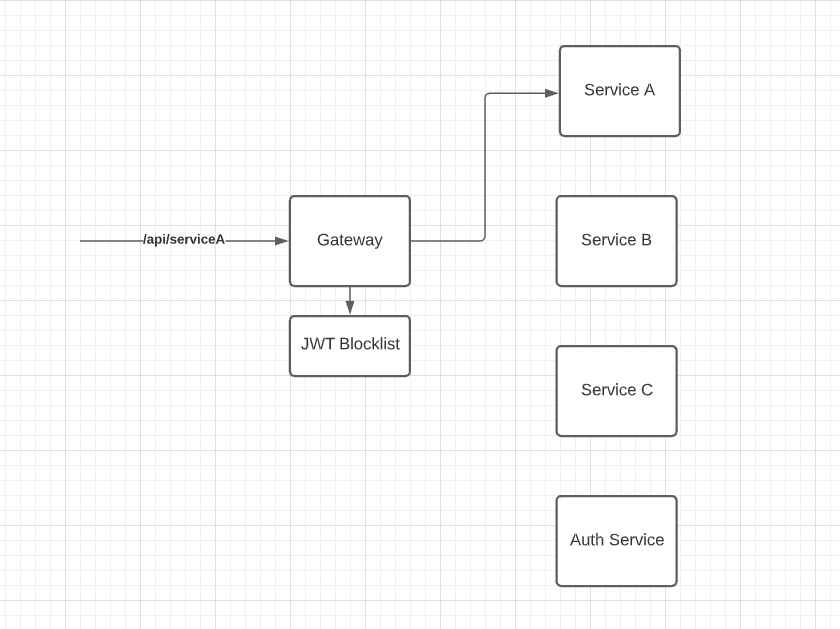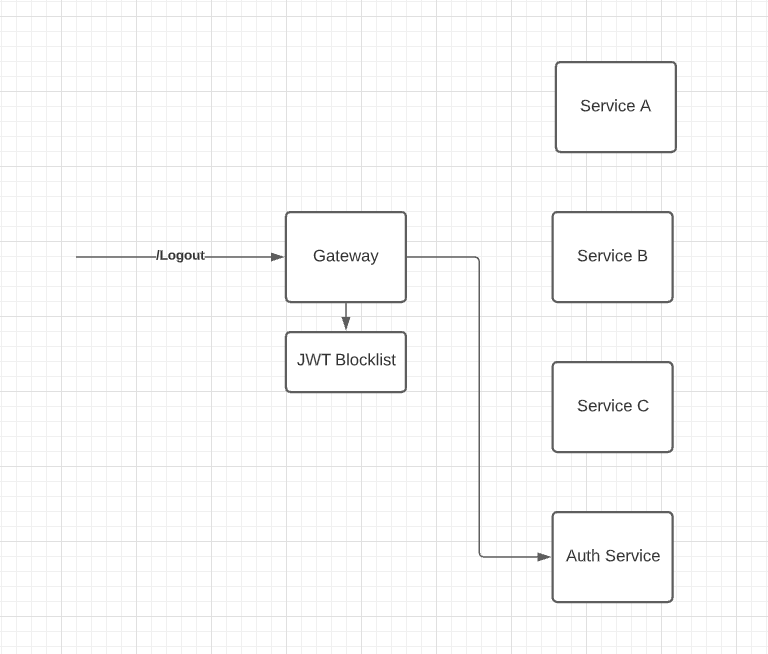I am working on a microservices project involving 4 services - Auth Service, Service-A, Service-B and Service-C.
All the services are implemented using Spring Boot. The Auth Service is responsible for authenticating logged in user and generating a JWT bearer token. Each of Service-A/B/C has JWT filters which checks for validity of token and then provide access to the Rest APIs.
Now I want to implement logout feature. The logout request goes to Auth Service. The Auth Service uses Redis. The token is added to list of invalid tokens with ttl set so that after the expiry the token is removed automatically.
Now how can JWT filters in Service-A/B/C access the blacklisted token so that Rest API access is approved/disapproved? If all the services are deployed in same system the services can access Redis easily. If the services are deployed in different systems, how can they access the invalid tokens?
Should I implement pub/sub messaging and each service have a list of invalid tokens stored in redis? Or is there a better approach in microservices environment?


